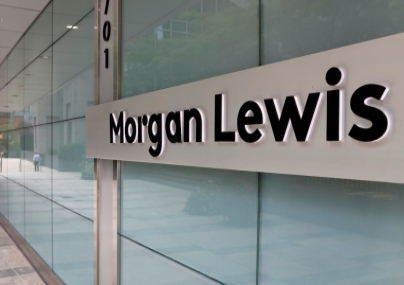In the past few years, the nascent blockchain technology has evolved to become widely implemented in dozens of different areas and its popularity is only increasing. Governments across the world are looking for ways to regulate it, and China is no different.
China is getting serious about blockchain. In January, the country's Cyberspace Administration announced new regulations related to distributed-ledger technology; this came some months after it issued public alerts related to risks associated with virtual currency and blockchain on 24th August 2018. It even banned ICOs in early September.
It hardly has a choice. In the past few years, blockchain technology has proliferated rapidly across the world, and now being used in a variety of industries. This means that governments cannot ban it, but at the same time, taking a hands-off approach will be far too risky.
"As expected, the common ground will be regulation. Blockchain and cryptocurrencies are too big for governments to ignore or treat in a laissez-faire manner. Equally blockchain and cryptocurrencies are too big to just prohibit. Governments will not wish to impede the development of these new technologies," said Mark Schaub and Stanley Zhou, partners, and senior foreign legal consultant David Hong of King & Wood Mallesons (KWM) in a recent client alert.
Many jurisdictions in the world have already been making meaningful progress in the regulation of blockchain technology, or included it under current regulation. For example, in September 2017, the SFC created a regulatory sandbox for security token exchanges in Hong Kong market.
"Blockchain technology is not itself regulated in Hong Kong. This makes Hong Kong a vibrant development market. However, there are three caveats to this: it has components that are regulated – for example, data that is recorded on a distributed ledger can engage privacy laws; it also has use cases that are regulated, such as tokenised securities and third party custody solutions; and certain users are regulated – such as banks deploying blockchain as part of their front or back office functions," said Urszula McCormack, partner and Regulatory / Emerging Technology specialist at KWM.
"Clearly, while blockchain is not just of application and relevance to the financial services industry, we are seeing a lot of interest from financial regulators in the technology. Currently, there's a framework of laws developing across territories and regions on how financial services businesses should look at blockchain, how shadow infrastructure relies on external providers, cloud providers and other technology providers, and the types of guarantees and protections that need to be in place before they share client information with these third parties and build technologies with them. Concern around systemic risk and financial services is a big theme globally," noted Jonathan Kewley, partner and co-head of Clifford Chance's technology group.
According to Kewley, the other global trend is artificial intelligence and the fact that blockchain solutions are often incorporating AI into their platforms makes things complicated. "We know that blockchain is this kind of chain of data that you can't break and split. Then you add AI which may be working in the background, for example, by making decisions based on that data, which may exclude certain individuals or exclude certain groups of people based on the data. That raises concerning questions in relation to prejudice and bias, about how the algorithms actually work, about transparency, and what's happening with their information. Today there are many different areas of law which are starting to be triggered with data at the core of these issues. Data is the universal theme here, but it can be data and financial services, data and AI, and data and anti-trust," he said.
EMBRACE THE UNCERTAINTY
Cybersecurity from a blockchain perspective is a systematic risk which never really goes away. And these ongoing risks evolve constantly. Lawyers working in areas related to blockchain thus need to keep learning and adapting.
"Blockchain is a truly global product because the solutions that form part of that platform, will in all likelihood will be across countries, across regions, multiple datasets, multiple parties – basically a global ecosystem," said Kewley, "Again, your outlook cannot just be one country: Hong Kong, London or New York. You have to have a global risk perspective."
Kewley sees the importance of combining legal teams with technologists early on, but points out that making the combination work in the right way can be very challenging for some clients and some law firms too, because an innovation team is naturally very fast moving and urgent, and wanting to come to a result. And often the lawyer's instinct can be to slow down, and to create frameworks and structures and manage risk.
"These two competing mindsets need to come together and provide solutions. Culturally, we are helping a lot of clients get over that hurdle," said Kewley.
McCormack added that, even though certain grey areas remain, it's important for lawyers to take a position and then outline the areas of risk, to let clients make informed decisions. Good advice means investing the time to understand the technology and be willing to ask a lot of questions. Engaging with software developers and innovators at a very granular and practical level is the only way to give relevant advice and help clients create sustainable business models.
"Whilst the technology is relatively new, there is a lot of great existing law that we can draw upon to give practical advice. For example, if someone wishes to make a market in unregulated digital assets, it's useful to look at consumer protection laws and the statutory market misconduct regime for securities to help them build a credible framework," she said.
区块链监管
在过去几年里,区块链这一新兴技术已在数十个领域得到广泛应用,且受欢迎度越来越高。许多国家的监管机构都在尝试规范这一新技术,中国也不例外。
中国政府开始加强对区块链的监管。2019年1月10日,中国国家互联网信息办公室公布了新的区块链信息服务管理规定,并于2月15日起正式施行。这是继2018年8月24日银保监会、中央网信办、公安部、人民银行和市场监管总局联合发布《关于防范以“虚拟货币”“区块链”名义进行风险集资的风险提示》的另一重磅监管文件。在此之前,2017年9月中国政府出台了严厉禁令,取缔通证发行引发的一切非法集资和诈骗活动。
对于中国监管机构来说,加强区块链的监管势在必行。区块链这项革命性技术在过去几年里发展迅猛、在很多行业领域得到广泛应用,并对全球经济产生了重大影响。政府再想一味取缔或禁止是不可能的了,但如果采取放任不管的态度,更意味着巨大风险。
“一般而言监管会是通常做法,区块链和加密货币对政府来说很重要,不可能采取放任不管的态度。同样,区块链和加密货币也已经足够大到无法被完全禁止,政府不希望阻碍这些新技术的发展。”金杜律师事务所合伙人肖马克律师、周昕律师、资深外国法顾问David Hong在近期一份法律简讯中谈到。
从全球层面来看,越来越多的法域开始对区块链做出监管指引或将区块链纳入已有监管体系之下。2017年9月29日,香港证监会和保监会效仿英式监管模式就推出了“监管沙盒”。
“香港对区块链技术本身没有严格监管的机制,因此极大释放了区块链技术在香港的发展潜力。但有三点值得注意:第一,监管边界。比如,记录在分布式分类账上的数据可能涉及隐私法保护范畴;第二,特定监管情形。也有使用曾受监管的案例,比如代币型证券和第三方托管解决方案;第三,特定用户受到监管。比如在前端或后端利用区块链技术的银行将受到监管。”金杜律师事务所合伙人、监管与新兴技术专家邬素兰律师表示。
“显然,尽管区块链并非仅应用于金融服务业,也并非仅与金融服务业相关,但我们正看到越来越多的金融监管机构对这项技术表现出浓厚兴趣。目前正在发展一个跨法域和地区法律框架,以应对诸如如何在金融服务业务中利用区块链技术,影子基础设施如何依托外部提供商、云服务提供商等其他技术提供商,以及在将客户信息共享给第三方和与第三方建立技术合作之前,应确保哪些担保和保护措施到位等问题。金融服务和系统性风险是全球性问题。”高伟绅律师事务所科技业务团队联席负责人和合伙人Jonathan Kewley指出。
在Jonathan看来,另一个全球趋势是人工智能在全球层面的应用,而实践中的通常做法是将人工智能嵌入区块链方案中,这将使得问题更加复杂。“我们知道区块链是一种将数据进行链接从而使得数据链无法被破坏或分离的技术。如果,举例来说,将人工智能技术嵌入区块链后台,通过对相关数据进行决策,就能根据那些数据将部分个人或团体排除在外。这将产生偏见和歧视的问题,以及算法的可靠性、透明度、以及数据本身可信度的问题。如今,很多领域的立法都受到了影响,而数据是所有这些问题的核心。数据是一个共同的主题,具体来说可能是数据和金融服务、数据和人工智能、数据和反垄断等。”
拥抱不确定性
从区块链角度看,网络安全的系统性风险无法做到根除,且这个风险持续在发生变化。对于区块链律师来说,除了紧跟技术最新态势、不断学习,别无他选。
Jonathan告诉ALB,“区块链是真正的全球化产物,构成该平台的解决方案很可能是跨国家、跨地区、包含多个数据集及多个参与方的,几乎构成一个全球生态系统。因此,看待区块链问题,不能局限在某一国家或地区,比如香港、伦敦或纽约,而必须具有全球风险视角。”
在合作模式上,Jonathan强调律师团队与技术人员应尽早结合,但同时指出,对于一些客户和律所而言,二者实现无缝合作将极富挑战:技术创新业务团队天然的习惯快速行动,有很强的紧迫性,渴望看到成果;而律师会本能性的放缓进程,以创建框架和结构并进行风险控制。
“这两种看似矛盾的思维路径如何扬长避短、各取所长,在高伟绅律师事务所是有着成熟且行之有效的解决方案的,” Jonathan指出。
邬素兰律师也补充道,尽管立法相对滞后产生的“灰色地带”客观存在,但作为区块链领域的律师需要给客户清晰且阐明各种潜在风险的法律意见,协助客户做出适合的商业决定。这就要求律师投入大量时间去研习技术、追问技术背后的每一个问题,并与技术开发商和业务创新人员保持全面及深入的沟通。
“虽然区块链技术相对较新,现行法律中仍能找到合适的规定来解决客户当下面对的问题,比如要开辟不受监管的数字资产市场,研究消费者保护法和证券市场不当行为法定制度能起到一定助益。”邬律师谈到。
To contact the editorial team, please email ALBEditor@thomsonreuters.com.


